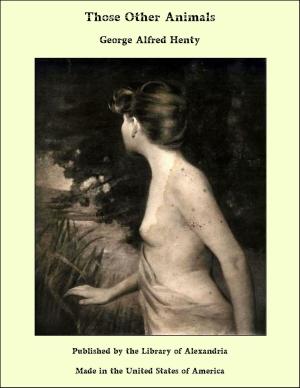| Author: | Anton Pavlovich Chekhov | ISBN: | 9781465589910 |
| Publisher: | Library of Alexandria | Publication: | March 8, 2015 |
| Imprint: | Language: | English |
| Author: | Anton Pavlovich Chekhov |
| ISBN: | 9781465589910 |
| Publisher: | Library of Alexandria |
| Publication: | March 8, 2015 |
| Imprint: | |
| Language: | English |
ANDREY VASSILITCH KOVRIN, who held a master’s degree at the University, had exhausted himself, and had upset his nerves. He did not send for a doctor, but casually, over a bottle of wine, he spoke to a friend who was a doctor, and the latter advised him to spend the spring and summer in the country. Very opportunely a long letter came from Tanya Pesotsky, who asked him to come and stay with them at Borissovka. And he made up his mind that he really must go. To begin with — that was in April — he went to his own home, Kovrinka, and there spent three weeks in solitude; then, as soon as the roads were in good condition, he set off, driving in a carriage, to visit Pesotsky, his former guardian, who had brought him up, and was a horticulturist well known all over Russia. The distance from Kovrinka to Borissovka was reckoned only a little over fifty miles. To drive along a soft road in May in a comfortable carriage with springs was a real pleasure. Pesotsky had an immense house with columns and lions, off which the stucco was peeling, and with a footman in swallow-tails at the entrance. The old park, laid out in the English style, gloomy and severe, stretched for almost three-quarters of a mile to the river, and there ended in a steep, precipitous clay bank, where pines grew with bare roots that looked like shaggy paws; the water shone below with an unfriendly gleam, and the peewits flew up with a plaintive cry, and there one always felt that one must sit down and write a ballad. But near the house itself, in the courtyard and orchard, which together with the nurseries covered ninety acres, it was all life and gaiety even in bad weather. Such marvellous roses, lilies, camellias; such tulips of all possible shades, from glistening white to sooty black — such a wealth of flowers, in fact, Kovrin had never seen anywhere as at Pesotsky’s.
ANDREY VASSILITCH KOVRIN, who held a master’s degree at the University, had exhausted himself, and had upset his nerves. He did not send for a doctor, but casually, over a bottle of wine, he spoke to a friend who was a doctor, and the latter advised him to spend the spring and summer in the country. Very opportunely a long letter came from Tanya Pesotsky, who asked him to come and stay with them at Borissovka. And he made up his mind that he really must go. To begin with — that was in April — he went to his own home, Kovrinka, and there spent three weeks in solitude; then, as soon as the roads were in good condition, he set off, driving in a carriage, to visit Pesotsky, his former guardian, who had brought him up, and was a horticulturist well known all over Russia. The distance from Kovrinka to Borissovka was reckoned only a little over fifty miles. To drive along a soft road in May in a comfortable carriage with springs was a real pleasure. Pesotsky had an immense house with columns and lions, off which the stucco was peeling, and with a footman in swallow-tails at the entrance. The old park, laid out in the English style, gloomy and severe, stretched for almost three-quarters of a mile to the river, and there ended in a steep, precipitous clay bank, where pines grew with bare roots that looked like shaggy paws; the water shone below with an unfriendly gleam, and the peewits flew up with a plaintive cry, and there one always felt that one must sit down and write a ballad. But near the house itself, in the courtyard and orchard, which together with the nurseries covered ninety acres, it was all life and gaiety even in bad weather. Such marvellous roses, lilies, camellias; such tulips of all possible shades, from glistening white to sooty black — such a wealth of flowers, in fact, Kovrin had never seen anywhere as at Pesotsky’s.















